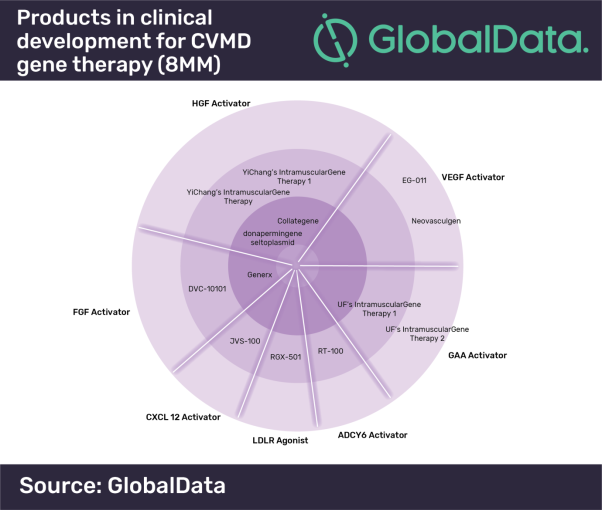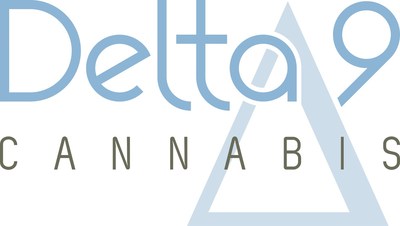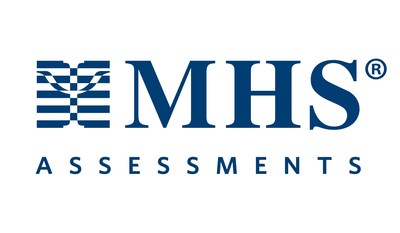Multi-Health Systems Inc (MHS) Appoints Hazel Wheldon as Chief Executive Officer
TORONTO, July 26, 2018 /CNW/ - Multi-Health Systems Inc. (MHS) announced today that Hazel Wheldon has been appointed as Chief Executive Officer of MHS, effective as of July 20, 2018. Founder and previous CEO of MHS, Dr. Steven Stein will continue as the Founder & Executive Chairman of MHS.
"MHS is excited to announce Hazel as the new CEO. Hazel has been an integral part of the leadership team for many years and it is a natural fit for her to lead us into the future," says Dr. Steven Stein, Founder and Executive Chairman. "We have been continually growing over the last 35 years, and I know Hazel will continue to push innovation and change to ensure the progress of the company and capitalize on the opportunities in front of us. Hazel can translate vision and strategy into execution, bringing teams together to drive results. Hazel is exactly the person we need as we enter this new chapter of MHS and I am confident it will be even more impactful and exciting than our last."
Wheldon joined MHS in 2003 as the VP of Publishing and quickly became an invaluable asset to the organization. Wheldon focused MHS' product development on high key value products in Talent, Clinical, Education and Public Safety. In 2014, Wheldon assumed the role of President and COO, working diligently to increase MHS' global presence. Leading the digital strategy, Wheldon tripled growth in both revenue and profit. In addition, Wheldon has revolutionized MHS' acquisition strategy, leading the company to diversify its partnerships, all while staying ahead of emerging trends and technologies.
"I am incredibly excited to assume this new role for the future of MHS. We have an amazing and talented team, who are continuing to innovate our products in new and diverse ways," says Wheldon. "As we move our organization forward, I am thrilled to lead the company through the final digital transition into a technology company focused on intelligent solutions for people analytics. As I assume the role of CEO I look forward to leading MHS through its next phase of innovation and growth."
MHS also announced today that Dr. Steven Stein, former CEO will continue at MHS as Founder & Executive Chairman. Stein has served as CEO of MHS since founding the organization in 1983 and will continue to work closely with Wheldon.
About Multi-Health Systems Inc. (MHS)
A leading technology company focused on innovative digital delivery of scientifically validated assessments and data analytics for more than 30 years, Multi-Health Systems Inc. (MHS) serves clients in corporate, clinical, educational, public safety, government, military, pharmaceutical, and research settings. With offices in North America and partners around the world, MHS is dedicated to improving the lives of individuals and communities through technology. MHS has developed leading products such as the Emotional Quotient Inventory (EQ-i 2.0®), the Conners™ suite of ADHD assessments, and the Level of Service™ suite of assessments.
MHS has been named one of Canada's Best Managed Companies since 2013 and Canada's 10 Most Admired Corporate Cultures since 2016. For more information about MHS, please visit www.mhs.com.
SOURCE Multi-Health Systems Inc.
Texas Women Breaks Boundaries Reserved for Men…

SwampButt Underwear™ Performance Brand For Men Now Worn By Women
July 26, 2018 (Lake Jackson, Texas) -- Thanks to Rachael Welsh of Angleton, Texas it is now okay for women to wear men's underwear. The United States has known its share of brave, smart, industrious women. Dolly Madison, Martha Washington, Susan B. Anthony, Amelia Earhart and now Rachael. This woman from Texas has broken a boundary few thought would ever be breached. Rachael Welsh wears underwear made for men. More precisely, she wears SwampButt Underwear Performance Brand (www.swampbutt.com) under her normal workout clothes in place of those undergarments made specifically for women when she is working out, jogging, or otherwise engaged in some strenuous physical activity.
The reason is simple and understandable: SwampButt Underwear Performance Brand can do everything garments made for women can do, and often at a much lower price. SwampButt Underwear performance undergarments are made from a blend of lycra and polyester fibers. For men or women, these will fit snuggly, there will never be any droop.
Free and Brave
Rachael is single and works as a librarian at an elementary school in southeast Texas. She is tall (right about 6 feet tall) gorgeous, and an extremely talented singer and performer. Rachael is also very smart and careful with her money. As athletic as she was, Rachael stayed in shape to dance and perform as part of her local theater group. Spending top dollar on clothes to work out in was not something she was interested in doing (part of being smart) but she still needed a garment to wear under leotards, running shorts and dance wear. Some of this was for the sake of modesty and another part was to be drier and more comfortable.
No woman wants to do floor exercises, stretches, jumps, or crunches with her 'lady business' exposed to weirdos, gawkers or the general public. Nor does she want to leave wet butt prints everywhere. SwampButt Underwear is made from polyester and lycra to wick and evaporate sweat faster than any traditional fabric.
Who Will Ever Know?
Rather than spend a fortune on undergarments made just for women, Rachel took a chance and wore a pair of SwampButt Underwear. While made with men in mind, she found that these performed extremely well as undershorts for her.
While SwampButt Underwear were made for men, Rachael saw no reason not to use them. “I need this type of shorts to cover my upper thighs during workouts, evaporate sweat, and give my performance a boost through compression; the same as a lot of women. But I was not going to spend sixty dollars on a pair of Spanx when a pair of SwampButt Underwear costs $18.99,” Welsh said. “Besides, no one is going to know these were really for guys anyway. I won’t tell.”
The Science of Preventing Sweaty Butt Cheeks
How the undergarment works and what it is made of are related. First, there is the phenomena of ‘wicking’ which is the way moisture travels across a larger area of fabric. The more and further moisture (in this case sweat) can disperse across a surface, the faster it can evaporate. Imagine a squeegee pulling water across a windshield. When spread to a larger surface are, the water on the windshield evaporates faster. Or push rain water across a drive way or parking lot into a larger surface area and it also evaporates faster.
The same thing happens with our garment. Sweat wicks across a larger area and evaporates faster because of this. The rate of wicking is related to the materials and the way sweat spreads across them. Polyester fibers are hydrophobic because they are really plastic and will not absorb moisture. Our performance undergarments are made from lycra and polyester fibers.
Honor Heroic Behavior With A Sale
To commemorate Rachael’s pioneering move to use something meant for men to her advantage, SwampButt Underwear is offering both a red pair and white pair of its performance underwear for $24.99 off a regular price of $37.98 for a savings of $12.99 or 34% savings.
The sale will run the remainder of July, 2018 through mid-August. Click here to buy yours now: SwampButt Underwear for Women: Red and White are Like Pink but not Quite.

Rachael Welsh of Angleton, Texas (on the right) made it okay for women to wear men's underwear.
|
| CARSTAR Paving the #RoadToResearch for Cystic Fibrosis Canada
People from Across Canada Living with Cystic Fibrosis Participate in Groundbreaking Study at Toronto SickKids Hospital
|
| HAMILTON, ON (July 24, 2018)– CARSTAR continues its efforts to find a cure for cystic fibrosis, funding Cystic Fibrosis Canada on their #RoadToResearch, providing flight and accommodations to CFIT study participants.
The Cystic Fibrosis Individualized Therapy (CFIT) program is a one of a kind study being conducted at Toronto SickKids Hospital, requiring people from across Canada living with particular strains of cystic fibrosis (CF) to participate. The CFIT program’s objective is to develop effective, personalized treatments for every person living with cystic fibrosis.
Since launching the CFIT program in January 2016, SickKids scientists Dr. Christine Bear, Dr. Felix Ratjen, Dr. Janet Rossant and their colleagues have generated cell samples from 58 patient participants with cystic fibrosis. The team has used its biobank of samples to generate 29 stem cells lines, with another 15 more in various stages of completion. The five-year goal is to create 100 healthy stem cell lines representing the diversity of CF gene mutations across Canada.
It is estimated that one in every 3,600 children born in Canada has CF. More than 4,100 Canadian children, adolescents, and adults with cystic fibrosis attend specialized CF clinics.
The #RoadToResearch effects will go far beyond Shine Month, the time of the year when CARSTAR locations from across Canada spend the month of June raising valuable funds and awareness for Cystic Fibrosis Canada. This year, CARSTAR raised thousands of dollars for research and treatment for cystic fibrosis. CARSTAR is providing air travel and accommodations for people participating in the CFIT research study at Toronto SickKids Hospital
CARSTAR has developed a special video to highlight the program and educate Canadians about the need for Cystic Fibrosis research and treatment. Click hereto view.
About CARSTAR
CARSTAR -- a part of the Driven Brands, Inc. family of automotive aftermarket franchise brands -- is North America’s largest Multi-Shop Operator Network of independently owned collision repair facilities with more than 550 locations in 34 states and 10 Canadian provinces. CARSTARin the U.S. and CARSTARin Canada deliver national scale, consistently high-quality vehicle repairs, repeatable outcomes and the industry’s highest customer satisfaction ratings; all repairs are backed by a national warranty and service guarantee. Through a variety of fundraising initiatives, CARSTAR, its franchisees, partners and employees have raised over $3 million for Cystic Fibrosis Canada, and has made fighting cystic fibrosis its cause, North American wide. For more information visit www.carstar.comand www.carstar.caand follow us on Facebook and twitter. CARSTAR is actively seeking new franchisees. Interested parties should contact 844-906-9764.
|
Baxter Announces Health Canada Approval of Spectrum IQ Infusion System
- Designed with Exclusive New Features for Bi-Directional Electronic Medical Records Integration Including Auto-Programming and Auto-Documentation
- Offers Both English and French Language Options and First-of-Its-Kind Software Technology to Help Simplify User Experience, Reduce Programming Errors and Enhance Patient Safety
- Partnership with First Databank (FDB) Integrates FDB Infusion KnowledgeTM, Evidence-Based Infusion Medication Dose Limits within Dose IQ Safety Software
MISSISSAUGA, ON, July 25, 2018 /CNW/ - Baxter Canada, a leader in innovative technology for medication delivery, today announced Health Canada approval for the Spectrum IQ Infusion System with Dose IQ Safety Software. The Spectrum IQ system features new bi-directional electronic medical records (EMR) integration to help ensure the correct medications and fluids are delivered to the patient. The Spectrum IQ system also features unique capabilities to help make auto-programming, protection for high-risk infusions and drug library compliance more consistently achievable for health systems and is the first-of-its-kind to offer the option to display information in both English and French languages.

"The Spectrum IQ system is intelligently designed with exclusive new features to simplify EMR integration for health systems while raising the bar for patient safety and clinician efficiency," said Stephen Thompson, General Manager and President, Baxter Canada. "We look forward to bringing this leading technology to more patients and healthcare providers across Canada, including being able to offer our Spectrum platform with French language capabilities for the first time."
The Spectrum IQ system features the broadest range of auto-programming workflows and feature sets and embedded on-screen barcode technology that helps eliminate the need for a sticker barcode and provides clinicians with scan prompts to help maintain or increase auto-programming compliance and automatically document infusion data into the EMR. The Spectrum IQ pump is also the only infusion pump to feature Line Check Notification technology* that supports line management by providing a visual notification matching the infusion pump and medication being infused.
Baxter has also partnered with First Databank (FDB) to incorporate an evidence-based library of IV medications called FDB Infusion Knowledge™ into Dose IQ safety software to help make infusion delivery safer. Dose IQ software powered by FDB Infusion Knowledge provides a knowledge base of suggested infusion parameters for the Spectrum IQ system such as dose limits, concentrations and durations. FDB is a leading provider of drug and medical device knowledge and supports healthcare professionals in making informed decisions at the point of care, intended to improve the quality of patient care.
The Spectrum IQ pump includes leading features designed to help drive the highest levels of drug library compliance in the industry, such as wireless drug library updates without interrupting clinical workflow and automatically defaulting to the installed drug library without requiring clinicians to take extra steps to use the safety features. Baxter's Spectrum systems—including the Spectrum IQ system—are the only infusion pumps with a built-in Dose/Rate Change Error Prevention Feature, which helps clinicians protect high-risk infusions during titrations, and helps allow pharmacists to customize dose change limits for individual drugs.
Other key features designed to facilitate increased hospital efficiency include:
- Built-in DeviceVue Asset Tracking Application, which displays pump status and location data on a PC, tablet or smartphone without the need to interface with third-party real-time location systems**
- Alarm and alert routing designed to help reduce "alert fatigue" among nursing staff by sending alarm start and stop messages directly from the pump bedside to secondary Alarms Management Systems, including smartphones or work stations
- Enhanced data analytics and near real-time infusion data accessible from a single, centralized screen
- Standard set technology that can help yield up to 53 percent cost savings in IV tubing sets and up to 30 percent reduction in IV tubing usage
*Line Check Notification technology only compatible with Cerner® electronic health record (EHR) technology.
**Pumps must have at least 25% charge in order to continue providing data to DeviceVue.
For the safe and proper use of this device, refer to the appropriate operator's manuals.
About Baxter Canada
Every day, millions of patients and caregivers rely on Baxter's leading portfolio of critical care, nutrition, renal, hospital and surgical products. In Canada, we've been operating at the critical intersection where innovations that save and sustain lives meet the healthcare providers that make it happen for 80 years. With products, technologies and therapies available in more than 100 countries, Baxter's employees worldwide are now building upon the company's rich heritage of medical breakthroughs to advance the next generation of transformative healthcare innovations. Baxter Canada and its nearly 1,000 employees are located primarily in Ontario at the Head Office, CIVA Admixing and Technical Services Centres in Mississauga, and in Alliston – where Baxter operates Canada's only large scale manufacturing plant producing life-sustaining intravenous and dialysis solutions. To learn more, visit www.baxter.ca and follow us on Twitter, LinkedIn and Facebook.
Baxter, Spectrum IQ, Dose IQ and DeviceVue are trademarks of Baxter International Inc.
Cerner is a registered trademark of Cerner Corporation and/or its subsidiaries.
FDB Infusion Knowledge is a trademark of First Databank, Inc.
SOURCE Baxter Corporation
StrongBoard Balance® Uses Science to Take
Balance and Stability Training to New Levels
Fitness Company Presents the Unique Benefits
of MULTI SPRING TECHNOLOGY™

LOS ANGELES (July 25, 2018) – The makers of the StrongBoard Balance® have made public the science behind their innovative platform. Supported by evidence proven in Hooke’s Law and Newton’s Laws, MULTI SPRING TECHNOLOGY™ when activated, recruits more muscles than existing balance platforms, and offers an unparalleled, multiplanar approach to both balance and stability training.
The board’s effectiveness comes when a user stands on the platform, the four springs either extend or compress – which is stated in Hooke’s Law – and each progression from this point, depends on the distribution of weight and the placement of hands and feet in relation to the center or fulcrum. The spring compression and extension creates immediate instability, forcing a user to contract muscles in both the core musculature and the smaller stabilizing muscles around the joints.
As Newton’s Third Law states, “Every action has an equal and opposite reaction.” Therefore, every contraction to stabilize perpetuates an opposite reaction, thus creating variable instability across all planes of motion. Once the action and reaction chain is initiated, Newton’s First Law comes into play asserting, “An object at rest stays at rest, and an object in motion stays in motion.”
StrongBoard Balance helps users find their center of gravity while stationary (over the fulcrum) AND in motion (in various progressions away from the fulcrum). The contractions occur automatically and involuntarily when any weight is applied to the platform. This results in increased blood and oxygen flow to the engaged areas which improves healing, repairing and strengthening of muscles, tendons, ligaments and neural pathways.
“In the simplest terms, MULTI SPRING TECHNOLOGY™ works with your body to deliver the perfect amount of stimulation to keep your core musculature and stabilizing muscles engaged and contracted, while training your central nervous system, improving posture, proprioception and reaction time,” said Mike Curry, fitness expert and creator of StrongBoard Balance. “From professional athletes to fitness enthusiasts to the average person who wants to be healthy, StrongBoard Balance® is changing the way people view and experience balance and stability training.”
StrongBoard Balance is a portable, non-electrical platform that rests on four compression springs that allow users to train by using their own body weight for resistance during full-motion exercises. The springs act as a fulcrum and create a first-class lever system that operates much like a seesaw, but with 360 degrees of movement around the fulcrum providing unlimited dynamic articulation.
For more information visit StrongBoardBalance.com.
Esteemed members of the media may request StrongBoard Balance® or StrongBoard MINI® for review and editorial consideration by emailing Saul@StrongBoardBalance.com with their media outlet and qualifications.
About StrongBoard Balance:
StrongBoard Balance is a one-of-a-kind, premiere balance board for all levels of fitness enthusiasts. Designed to complement and intensify users’ favorite workout routines, StrongBoard Balance utilizes MULTI SPRING TECHNOLOGY™ (MST). MST works with your body to deliver the perfect amount of stimulation to keep your core musculature and stabilizing muscles engaged and contracted, while training your central nervous system, expediting calorie burn, improving posture, proprioception and reaction time. StrongBoard is portable and electricity-free. It is a functional fitness tool which allows users to train using their own body weight, or modalities, alone, with a personal trainer, or in group exercise.From yoga to kickboxing, athletic conditioning to gaming, StrongBoard plays well with others. Simply standing on StrongBoard Balance provides a complete core workout. Performing basic exercises on StrongBoard engages more muscles than the same exercises on the floor. It also requires focus and supports mindfulness. From the novice to the advanced, StrongBoard Balance Board delivers profound results to all, creating desired changes in how users look and feel along with huge improvements in balance, core strength, agility, and posture.
About StrongBoard MINI:
Featuring 4” compression springs in chrome, StrongBoard MINI is 2” shorter than StrongBoard Balance. Its patented MULTI SPRING TECHNOLOGY™ (MST) offers users the same benefits as StrongBoard Balance but with more rigidity, making it less reactive and easier to use while still providing a full range of motion and Unlimited Dynamic Articulation. Perfect for physical therapy, seniors, those who are afraid of heights, or living with a neurological disorder, StrongBoard MINI is portable and electricity-free. Its platform rests upon four compression springs, allowing individuals to train using their own body weight.
Keywords:
StrongBoard Balance, StrongBoard, Balance Board, StrongBoardBalance.com, MULTI SPRING TECHNOLOGY, MST, compression springs, Mike Curry, fitness expert, fitness professionals, Balance Training, center of gravity, balance board, platform, springs, exercise, workout, fitness, strength, agility, stability, flexibility, endurance, healthy, coordination, muscles, injury, rehab, rehabilitation, sports, athletes, motion, core strength
Opportunity for biotech firms to pursue drug candidates that target metabolic disorders, says GlobalData
Gene therapies have been a point of discussion during the last several years as a potential curative option for a variety of disease indications. The majority of the cardiovascular and metabolic disorder (CVMD) gene therapies in development are targeting cardiovascular indications, indicating immense opportunity for biotech companies to pursue drug candidates that target metabolic disorders, says leading data and analytics company GlobalData.
The company’s report, ‘Gene Therapy in CVMD’ focused on CVMD gene therapies, which included candidates targeting coronary artery disease, critical limb ischemia, diabetic foot ulcers and Pompe Disease, and that are in development in the eight major markets (8MM; the US, France, Germany, Italy, Spain, the UK, Japan and urban China). The report found that big pharma companies lag behind small bio-techs in R&D efforts.
In addition, the report reveals that, despite investment in CVMD gene therapies, the majority of the candidates across the 8MM are still in early R&D stages, whereas only a handful of CVMD gene therapies are in Phase II or Phase III clinical trials.

Within the entire CVMD space, the current gene therapy pipeline features approximately 13 candidates that are in Phase I, II or III of clinical development. Only three gene therapies have reached Phase III trials: AnGes MG’s Collategene, Angionetics’ Generx and ViroMed’s donaperminogene seltoplasmid.
Pavan Kottamasu, Healthcare Analyst at GlobalData, says: “Of the pipeline CVMD gene therapies, the majority of them target cardiovascular indications such as coronary artery disease, peripheral artery disease, critical limb ischemia, and systolic heart failure, indicating a massive opportunity for biotech companies to develop drug candidates that target metabolic disorders.”
Key opinion leaders interviewed by GlobalData anticipate big pharma companies to partner with these smaller biotech companies to enhance development of gene therapy candidates within the next decade.
IKARIA Resort Wear Limited-Edition Havana Night's Capsule Dazzles with Crystals from Swarovski®
Los Angeles, CA - July 24, 2018 - LA-based resort wear brand, IKARIA Resort Wear, channels the flair of Cuba for their Destination Cuba Resort 2019 collection. Old Hollywood glamour with a Cuban flair can be felt throughout the ethereal luxe 100% Silk 20-piece collection, designed to effortlessly transition from beach to dinner to the red carpet. Founder, Lisa Storie chose two key styles created with crystals from Swarovski® to highlight the beauty of Cuba and to elevate the designs. Havana Nights' Giselle and Lucia will be available for special order only.
The Ikaria Resort Wear 2019 Havana Nights Capsule transports us to the magical Island of Cuba. These One-of-a-Kind Designs are dazzling with Crystals fromSwarovski®. Ikaria Resort Wear's 100% Silk designs float easily from resort to dinner to the red Carpet inspiring our Havana Nights styles.
Old Hollywood glamour and the flair of Cuban salsa can be seen in the flirty side ruffle slits of the Giselle. The easy movement and comfort of this dress and the open, adjustable back tie make for a style that is sexy, glamorous and feels light and airy against the skin as you dance through sultry Cuban nights. The white sandy beaches and sparkling sea of Cayo Coco, Cuba inspired the Giselle in white 100% Silk Georgette adorned with Swarovski® Crystals. The crystal detail is created with a plethora of Crystals from Swarovski® ® in a multitude of sizes reminiscent of stars dancing across the Cuban sky.
The Lucia's svelte silhouette and exclusive Ikaria crystal design is created with Swarovski® Crystals on the front and back bodice of the dress reminiscent of Art Deco, an architectural theme visually echoed throughout the historic streets of Havana, Cuba. Lucia's elegant lines lead to a center slit that is both sexy and demure and allows for ease of movement as you glide across the dance floor. The magical night sky inspired the various shades of crystals delicately laid against the black 100% Silk Georgette design.
Ikaria Resort Wear's collection is designed and produced in downtown Los Angeles. The resort wear is made from 100% silk, making the styles lightweight and easy to slip on. The collection will be available on
www.IkariaResortWear.com. The exclusive styles featuring the Swarovski® Crystal designs will be available for special order.
| Alzheimer’s-related Study: Brain Training Upregulates Acetylcholine
(Chicago, IL) – A small study could have big implications in the battle against age-related cognitive decline and dementia, according to research announced today at the Alzheimer’s Association International Conference. The study was conducted by researchers at McGill University and Posit Science, and showed— for the first time ever in humans — that a particular type of brain exercise can increase the ongoing production of a brain chemical that is critical in addressing Alzheimer’s disease.
The brain chemical is acetylcholine, a neuromodulator, which the brain naturally produces at the moments when it needs to attend to information, and which is critical to memory and learning. Typically, the production of acetylcholine decreases with aging, and is more dramatically decreased in people with age-related cognitive decline, pre-dementia, and dementia.
The most commonly-used drugs to combat early stage Alzheimer’s are cholinesterase inhibitors (e.g., Aricept, Exelon, Razadyne), which decrease the rate at which the brain breaks down acetylcholine, leading to higher levels of acetylcholine in the brain. This strategy has been shown to mildly slow the decline associated with Alzheimer’s disease, but typically the benefits from this strategy are not sustainable over time.
“When we train rats to attend, we can reverse the downward spiral in acetylcholine production from aging, and up-regulate its natural production at the precise moment needed,” said Dr. Michael Merzenich the Chief Scientific Officer of Posit Science and Kavli Laureate in Neuroscience. “This is the first confirmation in humans that this more organic strategy can work, leading to higher levels of acetylcholine even in a resting state. Now, we need to perform larger studies in at-risk, pre-dementia, and dementia populations.”
The pilot, single-arm study collected baseline PET imaging on the production of acetylcholine from 5 older adults, who then completed a total of 12 hours of computerized training on iPads (in 4-5 sessions per week of 30 minutes each, over 5-6 weeks), and, then, were imaged again. The PET imaging showed an upregulation of acetylcholine of 16-24% in four areas across the forebrain (right inferior frontal gyrus, left caudate nucleus, bilateral medial prefrontal cortex, and left lingual gyrus/Cuneus). This mirrored behavioral results showing improved attention.
The proprietary exercise used in the study presents a user with a target image, and then shows the user a series of images, with each presented for a split-second. If the presented image does not match the target, the user responds by tapping (a key or screen), but if the image does match the target, the user withholds a response (not tapping).
The exercise is designed to be attentionally-demanding—driving both focus and suppression of distraction. A commercialized version of the exercise is found exclusively in the BrainHQ web and mobile apps from Posit Science, and is known as the “Freeze Frame” exercise.
The exercise was designed by Dr. Tom Van Vleet of Posit Science and Dr. Joe DeGutis of Harvard Medical School. The acetylcholine imaging was conducted in the lab of Dr. Etienne de Villiers-Sidani of McGill University.
Two years ago at the same conference, researchers from the 10-year, 2800-person ACTIVE Study presented results that showed those who trained with an exercise licensed exclusively by Posit Science had a 29-48% reduced risk of dementia (depending on the amount of training and the categorization of dementia). Those results increased interest in the mechanisms of action that cause plasticity-based brain exercises to be effective.
“Just as physical exercise unleashes multiple mechanisms to drive better physical health, plasticity-based brain exercise drives many key mechanisms, in concert, to drive better brain health,“ observed Dr. Henry Mahncke, CEO of Posit Science. “Recent studies have shown increased white matter integrity, increased neural connectivity and efficiency, increased hippocampal activation, increased beta-band activation, improved performance in the Central Executive Network, and stabilization of the Default Mode Network. This first demonstration of increased production of acetylcholine is perhaps the most significant development, not just because of its application to Alzheimer’s, but to a host of other conditions as well.” |
|
|
Delta 9 Applauds Manitoba Cannabis Retail Expansion
/NOT FOR DISSEMINATION IN THE UNITED STATES OR FOR DISTRIBUTION TO U.S. WIRE SERVICES/
WINNIPEG, July 24, 2018 /CNW/ - DELTA 9 CANNABIS INC. (TSXV: NINE) ("Delta 9" or the "Company") confirms it will be applying for a license to open more cannabis retail outlets in Manitoba, as part of the second phase of retail cannabis expansion announced yesterday by the Manitoba Government.
Growth, Enterprise and Trade Minister Blaine Pedersen announced Monday, July 23, that his government will issue a second public tender for companies that wish to build and operate cannabis retail stores across the Province. Mr. Pedersen said the intention is to ensure that within the first two years of legalization, 90 per cent of Manitobans will be able to access legal cannabis within a 30-minute drive or less.
"In proceeding with phase two of our retail strategy, we are keeping our promise to establish a competitive retail environment that creates new economic opportunities for all Manitobans," said Pedersen.
Delta 9 CEO John Arbuthnot says he's happy to see the Manitoba Government pushing forward on the second phase of retail expansion.
"As one of the most experienced cannabis companies in Canada, and one of only two cannabis companies based in Manitoba, we feel we are uniquely qualified to provide this important product and service, and to provide more economic development and employment for the people of Manitoba," Arbuthnot said.
The Company has already secured locations for its first four retail stores, two of them in Winnipeg, one in Brandon, and the fourth in Thompson. Arbuthnot says he doesn't know yet how many retail stores will be allowed in the second phase of the program, but adds the Company would be prepared to open up to an additional dozen stores in 2019.
"As a local company, we want to be able to serve the people of Manitoba in every corner of the Province," Arbuthnot said. "It's clear from the Minister's remarks that he is concerned more remote communities may not be well served, so we're committing that as part of our program, we will absolutely build a network that includes smaller rural communities as soon as possible.
"We are fully funded to expand our operations throughout Manitoba, and to increase our production to meet demand," Arbuthnot added.
The Manitoba Government will first issue a Request for Pre-Qualifications (RFPQ) which companies can respond to by August 31, 2018. Companies must first qualify to become a candidate for retail store licenses, and will then be eligible to apply for a license under a Request for Proposals.
Delta 9 is among the companies that have already qualified as a retail license holder in Manitoba. Mr. Pedersen confirmed yesterday that retailers who submitted proposals under the initial public tender will be eligible for the current RFPQ process.
About Delta 9 Cannabis Inc.
Delta 9's wholly-owned subsidiary, Delta 9 Bio-Tech Inc., is a licensed producer of medical marijuana pursuant to the ACMPR and operates an 80,000 square foot production facility in Winnipeg, Manitoba, Canada. Delta 9's shares trade on the TSX Venture Exchange under the symbol "NINE".
Neither the TSX Venture Exchange nor its Regulation Services Provider (as that term is defined in the policies of the TSX Venture Exchange) accepts responsibility for the adequacy or accuracy of this release.
Disclaimer for Forward-Looking Information
Certain statements in this release are forward-looking statements, which reflect the expectations of management regarding the Company's future business plans and other matters. Forward-looking statements consist of statements that are not purely historical, including any statements regarding beliefs, plans, expectations or intentions regarding the future. Forward looking statements in this news release include statements relating to: (i) Delta 9's expansion plans; (ii) Delta 9's production of cannabis; (iii) approvals for Delta 9's production facilities by Health Canada; (iv) demand for Delta 9's products; and (v) Delta 9's cost to produce its grow pods. Such statements are subject to risks and uncertainties that may cause actual results, performance or developments to differ materially from those contained in the statements, including that Delta 9's currently contemplated expansion and development plans may cease or otherwise change, Delta 9's production of cannabis may be lower than expected, Delta 9 may not obtain the required approvals from Health Canada, demand for Delta 9's products may be lower than anticipated, Delta 9's cost to produce its grow pods may be higher than expected and all other risk factors set forth in the filing statement of Delta 9 dated October 25, 2017 which has been filed on SEDAR. No assurance can be given that any of the events anticipated by the forward-looking statements will occur or, if they do occur, what benefits the Company will obtain from them. Readers are urged to consider these factors carefully in evaluating the forward-looking statements contained in this news release and are cautioned not to place undue reliance on such forward-looking statements, which are qualified in their entirety by these cautionary statements. These forward-looking statements are made as of the date hereof and the Company disclaims any intent or obligation to update publicly any forward-looking statements, whether as a result of new information, future events or results or otherwise, except as required by applicable securities laws.

SOURCE Delta 9 Cannabis Inc.
Women, Alcohol Abuse
And 4 Coping Skills For Recovery
A recent study that showed even moderate alcohol consumption can take years off your life not only attracted a lot of media attention, it also caused other studies about drinking to seem even more worrisome, especially with their findings about women.
We aren’t talking about harmless social sipping with friends here, and as the nation observes Women’s Health Care Month in May it’s worth exploring the growing negative role that alcohol plays in the lives of American women.
“My favorite line of all time is: ‘I don’t drink that much,’ ” says Dr. Soroya Bacchus (www.soroyabacchusmd.com), a psychiatrist and author of How to Detox Yourself from Alcohol.
“Sometimes the people who say this are right; they really don’t drink that much. More often, though, people say this to make themselves feel better about how much they do drink.”
Just last year, a study published by JAMA Psychiatry reported that more Americans are drinking high amounts ofalcohol, and some of the greatest increases are among women.
In addition, about 5.3 million women in the United States drink alcohol in a way that threatens their health and safety, according to the National Institute on Alcohol Abuse and Alcoholism.
For those women, just trying to get sober won’t fix the fundamental problem that caused them to drink too much to begin with, Bacchus says.
“I don’t care about sober,” she says. “I care about healthy. No one drinks or uses drugs in a vacuum. Usually there is an underlying mental disorder that causes and worsens the alcohol or drug use.”
It’s important that women with serious drinking problems seek medical assistance so they can detox in a safe manner, Bacchus says. Detoxification from alcohol has more complications from withdrawal than any other drug, and the death rate for alcohol withdrawal is between 5 and 8 percent, she says.
Even after detoxing, Bacchus says, a therapist can help women develop healthy psychological coping skills to avoid a relapse.
Among the ways they can do that include:
- Biofeedback therapy. This teaches you to develop voluntary, conscious control of physiological processes that are typically involuntary and unconscious. “If you have alcohol cravings, biofeedback teaches you how to identify the physical sensations associated with them and allows you to deploy strategies to counter them,” Bacchus says.
- Hypnosis or hypnotherapy. Through hypnosis a therapist can explore the potential root causes of alcoholabuse, such as previously unknown disorder, a hidden memory or a past trauma. Bacchus offers a caveat: Only undergo hypnotherapy with a trained professional you trust completely.
- Exercise. Every time you exercise you build yourself up both psychologically and physically, Bacchus says. “Before you know it, you have a positive habit that sustains you through tough times,” she says. “Instead of taking a drink, you go for a walk. Instead of falling into a rabbit hole of negative emotion, you hit the gym.”
- Yoga. Yoga is both a great exercise for muscles and joints, but also an excellent way to deal with stress. “This makes it a perfect practice for recovery,” Bacchus says, “because you need to rebuild your body from the ravages of alcohol abuse and rebuild your mind from the negative thought patterns you developed over years of addiction.”
“The goal is to replace the negative coping mechanisms of addiction with the healthy coping mechanisms of recovery,” Bacchus says. “You need your mind and body working in harmony so your soul can be at peace.”
About Soroya Bacchus, M.D.
Soroya Bacchus, M.D., (www.soroyabacchusmd.com) author of How to Detox Yourself from Alcohol, is a triple board-certified psychiatrist specializing in addition and psychosomatic medicine. She has treated patients with addiction issues for 22 years. She has been interviewed on such television shows as Good Morning America and has been quoted in the New York Times, the Huffington Post and other print and online publications.













